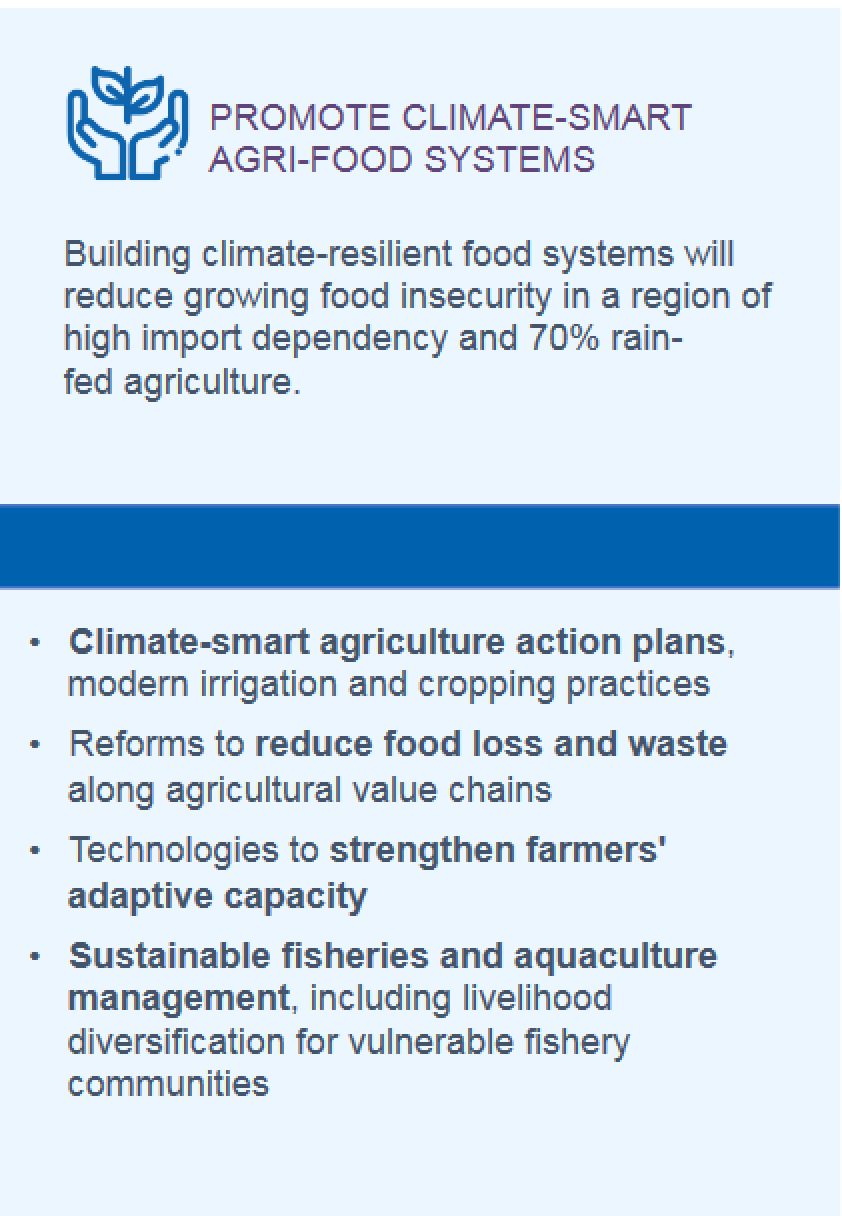The World Bank Group’s Roadmap for Climate Action in the Middle East and North Africa (MENA), which runs from 2021-2025, aims to drive climate action and a green recovery in the region. MENA is one of the most vulnerable regions to climate change, enduring extremely high temperatures, desertification, water scarcity, degraded marine and coastal ecosystems and high levels of air pollution. The roadmap outlines four key transformation areas to build low-carbon, resilient societies:
-
Food systems, water security and resilient natural capital: A climate-smart approach to agriculture and natural resource management in MENA is instrumental to achieve food security and preserve biodiversity, while ensuring peace and stability.
-
Energy transition and low-carbon mobility: Decarbonizing energy and transport sectors through renewable energy sources and clean mobility solutions can create jobs and drive economic growth while preventing health and environmental risks.
-
Climate-smart cities and resilient coastal economies: Climate-informed urban planning, strengthening municipal plans to ensure the continuity of public services, and integrated coastal management will help improve livability of cities and mitigate risks in the face of increased climate hazards.
-
Sustainable finance for climate action: Unlocking private capital, supporting national budgets and expenditures and strengthening financial institutions for green investments.

| Year of publication | |
| Geographic coverage | North AfricaMiddle East |
| Originally published | 28 Jan 2022 |
| Related organisation(s) | World Bank |
| Knowledge service | Metadata | Global Food and Nutrition Security | Climate extremes and food securityFisheries and aquaculture and food and nutrition securitySustainable Food Systems | Food loss and wasteClimate actionFood system |
| Digital Europa Thesaurus (DET) | climate changeAgriculturefood securitydevelopment aid |
